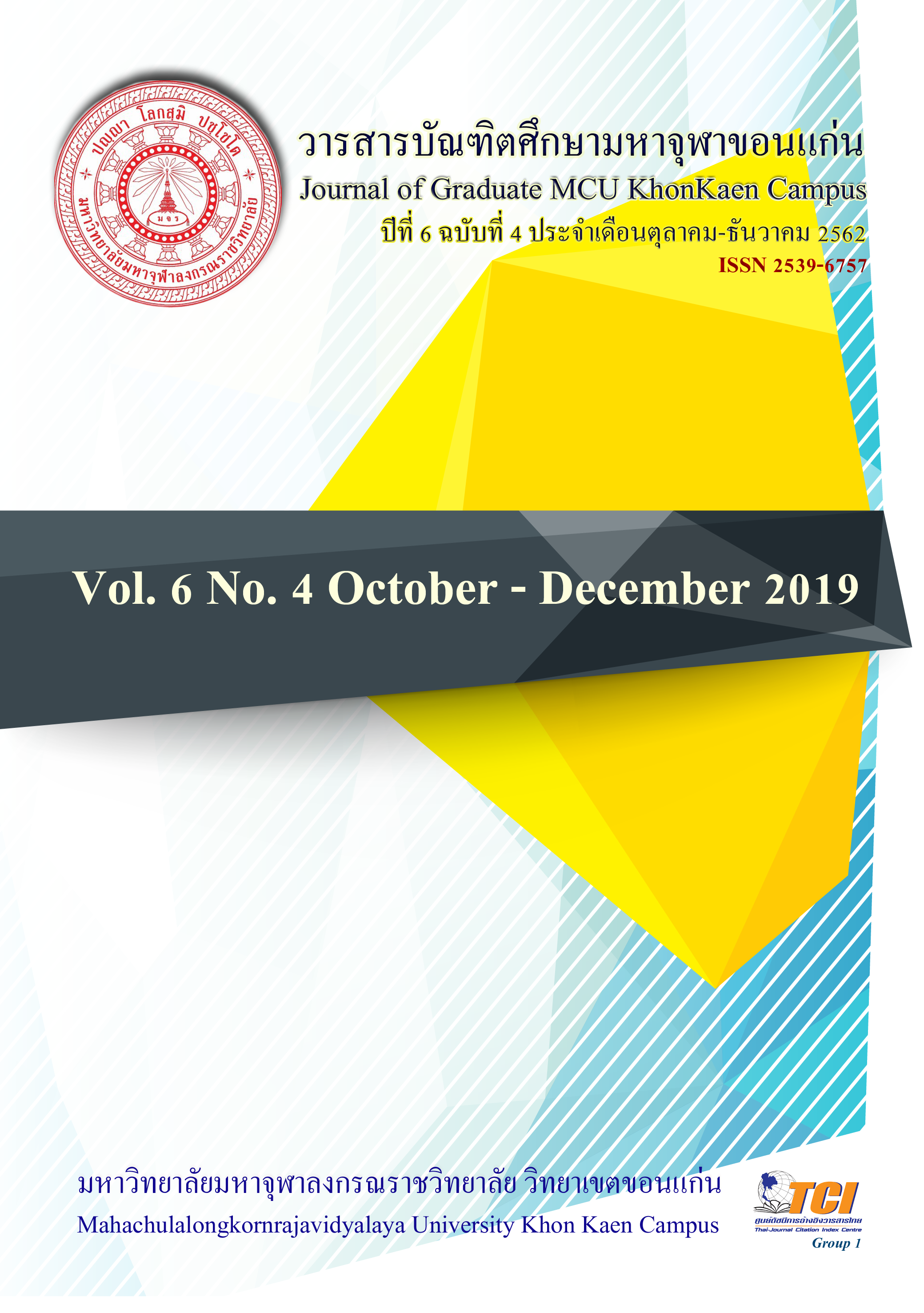อิทธิพลของทฤษฎีความรู้ของเดวิด ฮิวม์ ที่มีต่อมนุษย์
Main Article Content
บทคัดย่อ
อิทธิพลทฤษฎีความรู้ของฮิวม์ที่มีต่อมนุษย์นั้น ฮิวม์ได้ให้ข้อเสนอเกี่ยวกับเรื่องเหตุผลแก่การศึกษาและวงการปรัชญาว่า ความสัมพันธ์ระหว่างเหตุและผล ความเชื่อที่ว่า เหตุมีความสัมพันธ์กับผล ในความเป็นจริงแล้ว ทัศนะของฮิวม์ ทั้งเหตุและผลนี้เป็นเพียงการเกิดขึ้นแล้วก็สิ้นสุดลงเท่านั้น ไม่มีอะไรเกี่ยวข้องกันเลยในธรรมชาติของตัวมันเอง เหตุและผลเป็นเพียงเหตุการณ์ใด เหตุการณ์หนึ่งเท่านั้น ความสัมพันธ์ที่เกี่ยวข้องที่ว่าไม่มีอำนาจพลังอันใดที่จะรู้ได้ บรรดาของเหตุทั้งหลายก็ไม่มีพลังอย่างนี้เช่นกัน สิ่งที่เป็นเหตุและผลเป็นเพียงกลุ่มประสบการณ์ทางผัสสะหรือประสบการณ์ทางประสาทสัมผัสเท่านั้น
Article Details
รูปแบบการอ้างอิง
(บุริภักดิ์) พ. ฐ., & ภาวนาโพธิคุณ พ. (2019). อิทธิพลของทฤษฎีความรู้ของเดวิด ฮิวม์ ที่มีต่อมนุษย์. วารสารบัณฑิตศึกษามหาจุฬาขอนแก่น, 6(4), 18–29. สืบค้น จาก https://so02.tci-thaijo.org/index.php/jg-mcukk/article/view/219421
ประเภทบทความ
บทความวิชาการ
เอกสารอ้างอิง
Hume, David. (1971). An Inquiry Concerning Human Nature. Chicago : United States of America.
Phra Ratchaworamuni (Prayoon Thammachitto). (2001). Greek philosophy, Western wisdom origin. (5th ed.). Bangkok:
Samsam Publishing.
Phra Thaksin Khanathikorn (Sing Than Kham Kham). (2001). Philosophy. Bangkok: International Publishing House.
Prapat Phoengdon and faculty. (1997). Basic philosophy. (Department of Philosophy and Religion Faculty of Humanities
and Social Sciences Rajabhat Institute Chiang Mai.
Royal Academy. (2000). English-Thai philosophical dictionary. Rajabhatitthaya edition. Bangkok : Royal Institute of
Publishing.
Somruedee Wisatwet. (1996). Hugh's Knowledge Theory. Bangkok : Chulalongkorn University Press.
Witthan Suchikupta. (1996). Basic Philosophy. Bangkok : Ramkhamhaeng University Press.
Phra Ratchaworamuni (Prayoon Thammachitto). (2001). Greek philosophy, Western wisdom origin. (5th ed.). Bangkok:
Samsam Publishing.
Phra Thaksin Khanathikorn (Sing Than Kham Kham). (2001). Philosophy. Bangkok: International Publishing House.
Prapat Phoengdon and faculty. (1997). Basic philosophy. (Department of Philosophy and Religion Faculty of Humanities
and Social Sciences Rajabhat Institute Chiang Mai.
Royal Academy. (2000). English-Thai philosophical dictionary. Rajabhatitthaya edition. Bangkok : Royal Institute of
Publishing.
Somruedee Wisatwet. (1996). Hugh's Knowledge Theory. Bangkok : Chulalongkorn University Press.
Witthan Suchikupta. (1996). Basic Philosophy. Bangkok : Ramkhamhaeng University Press.

